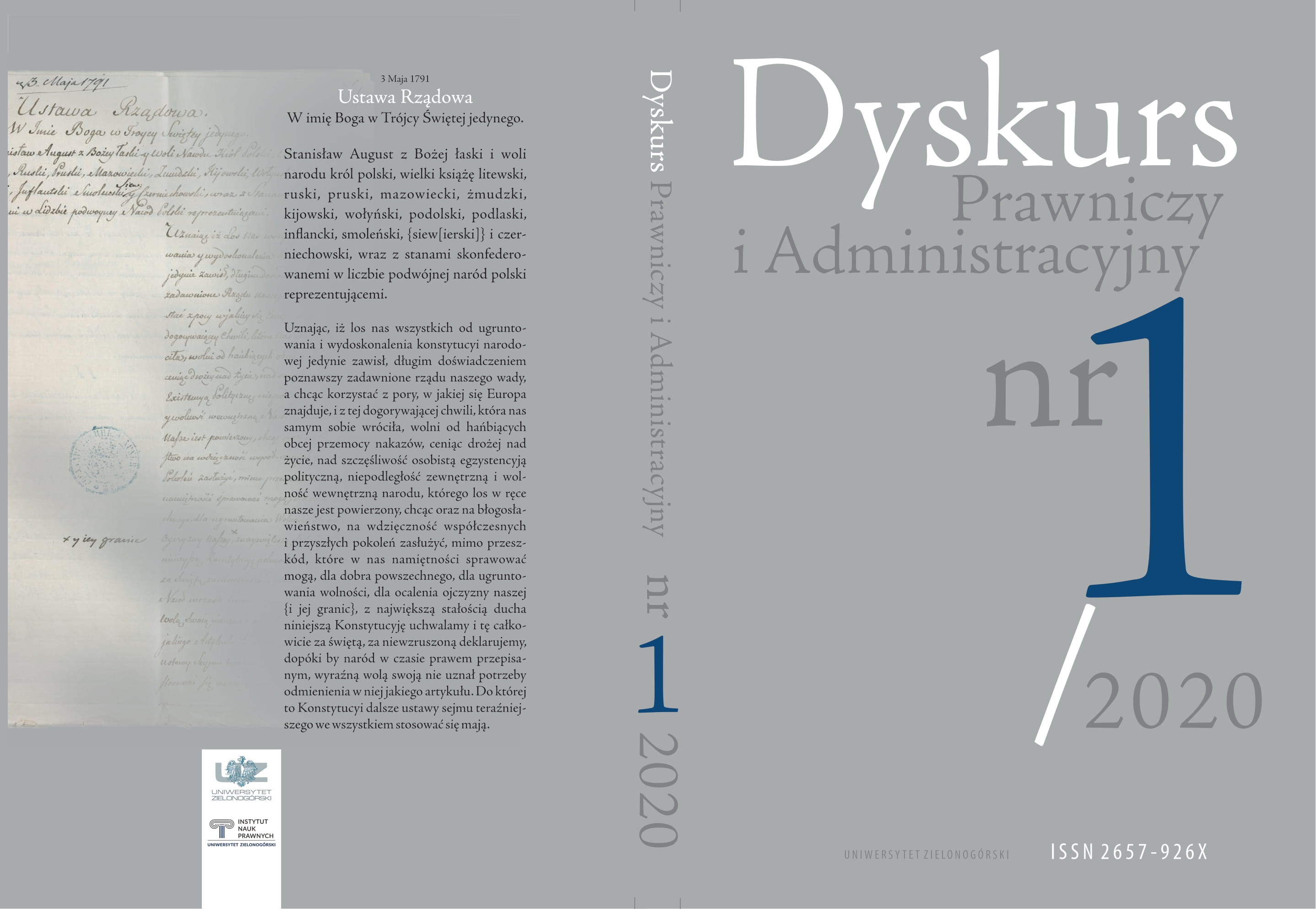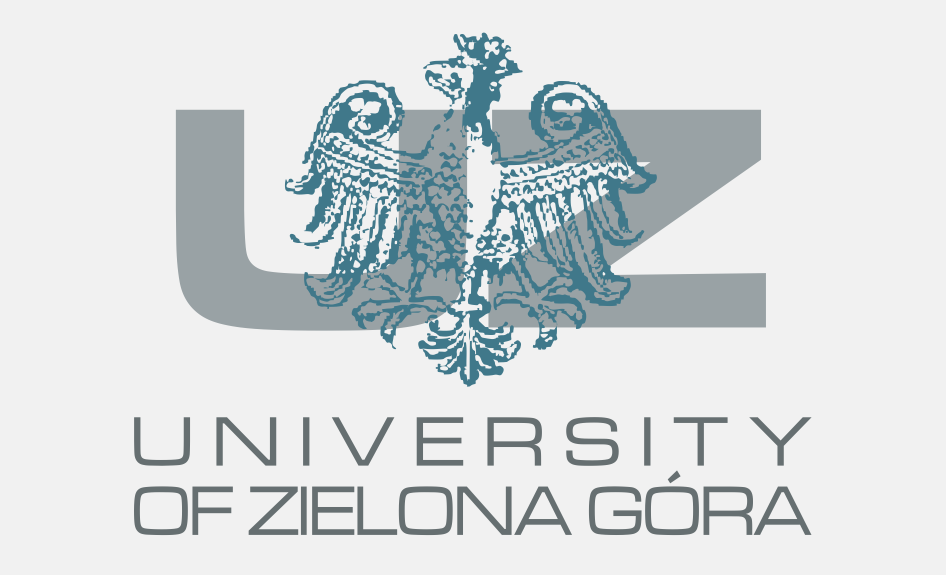Criminal liability for making a false statement in the act on specific solutions related to preventing, counteracting and combating COVID-19, other infectious diseases and crisis situations caused by them – selected problems
Keywords:
criminal liability, applying for financial support guaranteed on specific solutions related to preventing, counteracting and combating COVID-19, statement by persons affected by the spread of the disease caused by SARS-CoV-2 infection, suspicion of making a false statementAbstract
In this study, the author undertakes the currently live problem of making some statements by persons affected by the spread of the disease caused by infection with virus SARS-CoV-2 in Poland, who apply for financial support guaranteed by the regulation of the Act of 02nd March 2020 on specific solutions related to preventing, counteracting and combating COVID-19, other infectious diseases and crisis situations caused by them. It is about the statements made under pain of criminal liability for making a false statement, specified in Art. 233 § 6 of Penal code. The author points out that the content of these statements not infrequently requires a prior interpretation of complex regulations of this act, providing practical examples of such regulations. As a result of this, in criminal proceedings conducted in cases concerning the suspicion of making a false statement, a key significance may have the evaluation of the execution in concreto of the subjective features. In the final part of the article, the author discusses effects of the severe sanctions provided for a crime under Art. 233 § 6 of Penal code.
References
Bojarski T. (red.), Kodeks karny. Komentarz, Warszawa 2016, Lex.
Budyn-Kulik M., Umyślność w prawie karnym i psychologii. Teoria i praktyka sądowa, Warszawa 2015.
Cieślak M., Polskie prawo karne. Zarys systemowego ujęcia, Warszawa 1997.
Filar M. (red.), Kodeks karny. Komentarz, red. M. Filar, Warszawa 2008.
Glaser S., Mogilnicki A., Kodeks karny. Komentarz, Kraków 1934.
Górniok O., [w:] Kodeks karny. Komentarz. Tom III, Gdańsk 1999.
Herzog A., [w:] Stefański R. (red.), Kodeks karny. Komentarz, Warszawa 2020, Legalis.
Kallaus Z., Przestępstwa przeciwko wiarygodności dokumentów, „Nowa kodyfikacja karna. Kodeks karny. Krótkie komentarze” 1998, zeszyt 7.
Konarska-Wrzosek V. (red.), Kodeks karny. Komentarz, Warszawa 2020, Lex.
Kulik M., Czy bezpodstawne uchylenie się od złożenia zeznania jest zatajeniem prawdy w rozumieniu art. 233 § 1 k.k.?, WPP 2003, nr 3.
Majewski J., O pozaustawowym domniemaniu umyślności oraz jego szkodliwości, [w:] Majewski J. (red.), Umyślność i jej formy, Toruń 2011.
Młynarczyk Z., Fałszywe zeznania w polskim prawie karnym, Warszawa 1971.
Morawski L., Wykładnia w orzecznictwie sądów. Komentarz, Toruń 2002.
Razowski T., [w:] J. Giezek (red.), Kodeks karny. Komentarz, Warszawa 2014.
Sławiński M., Znamiona przedmiotowe i podmiotowe przepisów penalizujących złożenie fałszywego oświadczenia majątkowego przez osobę pełniącą funkcję publiczną (wykładnia art. 233 § 6 k.k. w zw. z art. 233 § 1 k.k. oraz art. 14 ustawy antykorupcyjnej), „Czasopismo Prawa Karnego i Nauk Penalnych” 2015, z. 4.
Szewczyk M., Wojtaszczyk A., Zontek W., [w:] W. Wróbel, A. Zoll, Kodeks karny. Część szczególna. Tom II. Komentarz do art. 212/277d, cz. 2, Warszawa 2017.
Wąsek A. (red.), Kodeks karny. Komentarz, Warszawa 2010, Legalis.
Wojtaszczyk A., Wróbel W., Zontek W., Przestępstwa przeciwko wymiarowi sprawiedliwości, [w:] Gardocki L. (red.), System prawa karnego. Tom 8. Przestępstwa przeciwko państwu i dobrom zbiorowym, Warszawa 2018.
Wojtaszczyk A., Wróbel W., Zontek W., Przestępstwa przeciwko wymiarowi sprawiedliwości, [w:] Gardocki L. (red.), System prawa karnego. Tom 8. Przestępstwa przeciwko państwu i dobrom zbiorowym, Warszawa 2018.
Zalewski W., [w:] Królikowski M., Zawłocki R. (red.), Kodeks karny. Część szczególna. Tom II. Komentarz do art. 222-316, Warszawa 2017, Legalis.
Zoll A., Nowa kodyfikacja karna. Kodeks karny, „Zasady Odpowiedzialności Karnej” 1998, zeszyt 12.
Published
How to Cite
Issue
Section

This work is licensed under a Creative Commons Attribution-NonCommercial-NoDerivatives 4.0 International License.





